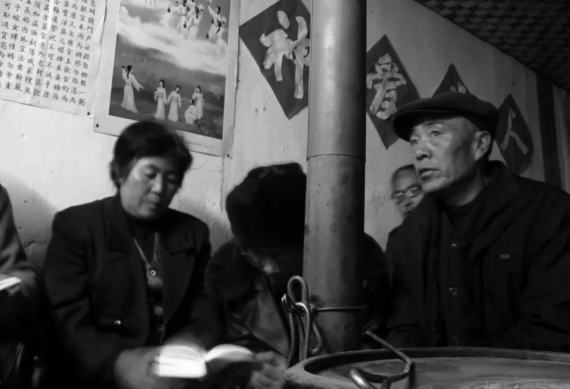I used to be very opinionated and that was quite against my conscience. That is, what the British speak is English, and what the Japanese speak is Japanese. Since I am a common person, what I speak is the language that I received from the time I was born!
Although reasoning tells me that my stubbornness is a bit unreasonable, I have, for many years, never blown it while speaking behind the pulpit - of course, this is because I live in my hometown and there are no "outsiders".
I attended a meeting in which the participants came from all over China. I thought they spoke strangely because of their accents and dialects. When I completed speaking, a brother who was a very tall and outgoing guy greeted me: "Brother Xu, you spoke very well!" I was quick to show my modesty as a Chinese person: "Not so well, not so well..."
He added an unexpected transitional remark: "Unfortunately, we didn't understand a word..."
I calmed down and analyzed my own "commonly received speech" that its application components and level should be regarded as "a local dialect". This is not surprising because I am a farmer who deals with the land every day. I am rustic and speak in a dialect. Naturally so! But the tall brother’s comment was a major blow, so I couldn't help but recognize the fact that I am "local".
True, it's nothing special for me to speak in a local dialect to my fellow peasants in our rural church. However, it is more normal for workers in the new era to travel hundreds of miles by train or car to communicate. Therefore, your dialect, which is standard only in a local area, will be extremely nonstandard and will cause discomfort or even confusion to people from different places. Only authentic Mandarin meets the standard for real speech.
And when you serve in a local area the elderly believers don’t find your speech unusual. A young believer, however, when listening to your "local accent" may find it awkward and even despise your speech because they have experienced the wider world by working outside of their hometown.
Certainly, rural pastors should have a good command of Mandarin, but that good command is pretty hard to achieve. First, being born and raised in my hometown, the dialect has been deeply rooted in me for decades. I even dream in our local dialect. To suddenly speak standard Mandarin is almost like starting from scratch. Even if I am transformed like an eagle and find myself renewed, and can speak very standard Mandarin, I still can't speak in it as freely as I want. My neighbors will say that I’m "pretentious when all the time I’m still just a peasant". That will allow them to laugh at me...
In many cases, you speak Mandarin only in the church pulpit, but when you are away from the pulpit or church, you’ll have to be down to earth and be rustic, talk in the local accent, speech, and dialect...
Tongues in the Bible have multiple functions. One of them is to make foreigners understand a local dialect in order to benefit the hearers. My "dialect" (or tongue; ‘dialect’ and ‘tongue’ are the same word in Chinese, translator’s note), on the contrary, makes people wonder what I have said. Paul required God’s servants to be "faithful and wise". Speaking Mandarin is not a sign of wisdom, but knowing an unusually ordinary local dialect is an embarrassment and so it is wisdom.
I was not dumb since I was a child, but when I became old, I suddenly couldn't speak a "human language" (sarcastically refers to Mandarin) and I couldn't help but feel ashamed. It is popular nowadays to be a "worker of the times". I’m not that "trendy", but as a "common man who can't speak the standard speech (or Mandarin)" is at least against the trend.
Many elderly brothers and sisters have learned to use smartphones when they stay at home during the pandemic. They are listening to songs, surfing the Internet, and listening to sermons when they wish. Look at them, I will too learn till I die. A common man vows to speak standard Chinese although it is a challenge and not a small one. Today, as a worker of God, "a worker of the times" of God, even if you serve in the countryside, the challenges that await you are lined up from far away!
Then I will go into battle starting with the ability to speak a "human language" i.e., common people speak a common language (Mandarin), because after all, pastors use languages as instruments, and if they have a good command of Mandarin, it’s as if they have a nuclear club!
(The original article is published by Gospel Times.)
- Translated by Charlie Li












